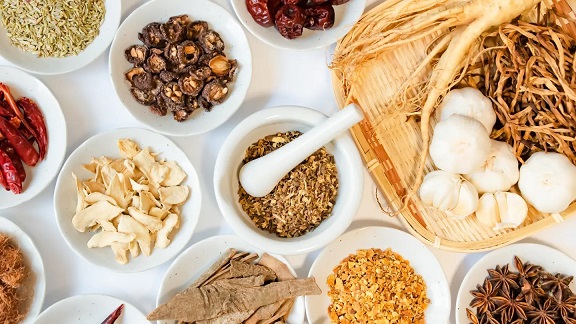Nikhil Prasad Fact checked by:Thailand Medical News Team Oct 19, 2025 3 months, 3 weeks, 4 days, 22 hours, 12 minutes ago
TCM News: A team of researchers from Guangdong Provincial Hospital of Chinese Medicine and Guangzhou University of Chinese Medicine has found that a traditional herbal blend known as the Yiqi Huoxue Jiedu Formula (YHJF) may help improve recovery outcomes in patients suffering from sepsis and septic shock. These are severe, life-threatening conditions that occur when the body’s immune response to infection causes widespread inflammation and organ failure. Despite advances in modern medicine, sepsis continues to kill millions worldwide each year. In this
Medical News report, the research highlights how ancient herbal wisdom could work alongside Western medicine to reduce some of the burdens of this deadly condition.
 Ancient Chinese Herbal Formula Offers New Hope for Sepsis Recovery
Study Background and Institutions Involved
Ancient Chinese Herbal Formula Offers New Hope for Sepsis Recovery
Study Background and Institutions Involved
The research was conducted by experts from multiple institutions, including Guangdong Provincial Hospital of Chinese Medicine, the Second Clinical Medical College, and the First Affiliated Hospital of Guangzhou University of Chinese Medicine, with additional contributions from the Chinese Medicine Guangdong Laboratory in Zhuhai. Their aim was to determine whether the Traditional Chinese Medicine (TCM) herbal formula Yiqi Huoxue Jiedu could serve as a beneficial complement to standard hospital treatments for sepsis and septic shock.
What Is the Yiqi Huoxue Jiedu Formula
The formula, a blend of ginseng root, notoginseng (also called Sanchi), and rhubarb, is based on traditional Chinese medicine principles that aim to strengthen vital energy, improve blood circulation, and eliminate toxins from the body. It has long been used in Chinese hospitals for severe infections but had not been thoroughly tested in a large-scale clinical setting until now.
Key Findings from the Clinical Study
Researchers studied 389 sepsis patients treated between 2016 and 2024 across four hospitals. Patients were divided into two groups — one receiving standard Western treatments and another receiving YHJF alongside modern therapies. Analysis revealed that while the herbal formula did not lower the 28-day death rate, it significantly improved several recovery markers. Patients who received YHJF had shorter hospital stays, required less time on ventilators, and showed better organ function scores, measured by the SOFA (Sequential Organ Failure Assessment) index. In cases of septic shock, the herbal formula helped patients spend less time on non-invasive ventilators, suggesting faster respiratory improvement.
How the Formula Works
Advanced laboratory tests showed that YHJF contains over 1,300 active compounds, including terpenoids, alkaloids, and phenylpropanoids — natural chemicals known to reduce inflammation, balance the immune system, and protect cells from oxidative stress. These bioactive compounds, absorbed into the bloodstream, may help stabilize organ function and reduce internal damage caused by infection. The researchers believe these effects explain the improvement in patient rec
overy times even though overall survival rates remained unchanged.
Implications and Future Research
While the study did not show a decrease in mortality, the improvements in patient recovery speed and organ function highlight the potential of YHJF as an adjunctive treatment. The authors emphasized that larger, high-quality clinical trials are needed to confirm these findings and understand how each herbal component contributes to recovery. They also noted that combining traditional Chinese formulas with modern medical care could open new possibilities for treating complex conditions like sepsis.
Conclusion
The study provides scientific support for the integration of traditional herbal medicine into modern critical care. Though it may not replace conventional antibiotics or intensive care, Yiqi Huoxue Jiedu Formula appears to enhance recovery by supporting the body’s healing systems. With further research, this herbal blend could become a valuable complementary therapy to improve the quality of life for sepsis survivors.
The study findings were published in the peer-reviewed journal Frontiers in Cellular and Infection Microbiology.
https://www.frontiersin.org/journals/cellular-and-infection-microbiology/articles/10.3389/fcimb.2025.1655393/full
For the latest TCM News, keep on logging to Thailand
Medical News.
Read Also:
https://www.thailandmedical.news/articles/tcm-news
https://www.thailandmedical.news/articles/herbs-and-phytochemicals
https://www.thailandmedical.news/articles/sepsis
https://www.thailandmedical.news/articles/thai-herbs-and-supplements
